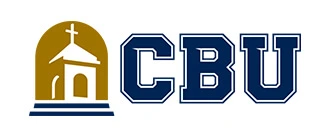If you have good listening skills and a desire to help others, you may want to consider an online Master of Science in Counseling Psychology from California Baptist University. Continue reading for more information.
<h2 id="section---FrequentlyAskedQuestions">Frequently Asked Questions</h2>
<h3 id="section---WhatKindOfProgramIsIt">What Kind of Program Is It?</h3>
<p>The Master of Science in Counseling Psychology at California Baptist University is designed to prepare students to pursue job positions in clinical counseling and marriage and family therapy. The curriculum combines counseling theory with practical techniques, so students have the chance to develop counseling knowledge and skills that directly translate to the field. A few topics that may be covered in the curriculum include human growth and development, sexuality, addictions counseling, group communication, and psychopathology. Students will also be able to complete a practicum, where they will counsel individuals in a supervised professional setting; they'll also have the opportunity to write a case report examination based on an experience from their practicum.
</p>
<h3 id="section---WhatAreThePrerequisites">What Are the Prerequisites?</h3>
<p>Applicants to the MS in Counseling Psychology program will need a bachelor's degree, a 2.75 minimum GPA, official transcripts, and a personal essay. A prerequisite course in general psychology or lifespan development is also required before beginning major courses. All applicants to California Baptist University must have a high school diploma or equivalent. Some programs may have additional requirements.
</p>
<h3 id="section---WhatAreTheCourseRequirements">What Are the Course Requirements?</h3>
<p>The counseling psychology master's program at California Baptist University requires 60 credits' worth of courses. A few of these courses will be dedicated to seminars and students' practicum experiences. Students will also have the option of taking a couple of additional courses to fulfill Professional Clinical Licensure requirements for the state of California.
</p>
<p><u>Core Requirements</u>
</p>
<p />
<table border="1"><tr><th>Course Code</th><th>Course Title</th></tr>
<tr><td>PSY 500</td><td>Diversity Issues in Counseling Psychology Seminar</td></tr>
<tr><td>PSY 501S</td><td>Professional Practice Seminar</td></tr>
<tr><td>PSY 502S</td><td>Professional Practice Seminar II</td></tr>
<tr><td>PSY 505</td><td>MFT Counseling Theory</td></tr>
<tr><td>PSY 510</td><td>Human Growth and Development</td></tr>
<tr><td>PSY 515</td><td>Human Sexuality</td></tr>
<tr><td>PSY 520</td><td>Human Communications in Group Process</td></tr>
<tr><td>PSY 530</td><td>Advanced Research Methodology</td></tr>
<tr><td>PSY 534</td><td>Pre- or Post-Practicum</td></tr>
<tr><td>PSY 535</td><td>Advanced Psychopathology</td></tr>
<tr><td>PSY 540</td><td>Psychodiagnostics</td></tr>
<tr><td>PSY 545</td><td>MFT Counseling: Child and Adolescent</td></tr>
<tr><td>PSY 555</td><td>Practicum I</td></tr>
<tr><td>PSY 560</td><td>Professional Ethics and Law</td></tr>
<tr><td>PSY 570</td><td>Practicum II</td></tr>
<tr><td>PSY 580</td><td>Family Therapy I</td></tr>
<tr><td>PSY 585</td><td>Family Therapy II</td></tr>
<tr><td>PSY 590</td><td>Christian Perspective on Professional Counseling</td></tr>
<tr><td>PSY 595</td><td>Psychopharmacology</td></tr>
<tr><td>PSY 598A</td><td>Addictions Counseling</td></tr>
<tr><td>PSY 598C</td><td>Aging and Mental Health</td></tr>
</table><p><u>Optional Professional Clinical Counselor Requirements</u>
</p>
<p />
<table border="1"><tr><th>Course Code</th><th>Course Title</th></tr>
<tr><td>PSY 536</td><td>Community Mental Health Counseling</td></tr>
<tr><td>PSY 537</td><td>Career Counseling</td></tr>
</table><h3 id="section---WhatCouldIDoAfterIGraduate">What Could I Do After I Graduate?</h3>
<h4 id="section---CareerOpportunities">Career Opportunities</h4>
<p>After graduation, students could pursue California licensure as a Licensed Professional Clinical Counselor (LPCC) or a marriage and family therapist. With knowledge and training from the program, students have the opportunity to work with several types of populations with different counseling needs. For example, students could work with young children, counsel couples, help people with addictions, or provide therapy for families.
</p>
<ul><li>Marriage and family therapist
</li><li>Substance abuse counselor
</li><li>Behavioral disorder counselor
</li><li>Mental health counselor
</li></ul><h4 id="section---AdvancedDegrees">Advanced Degrees</h4>
<p>Graduates of the counseling psychology master's program could pursue a doctoral degree related to psychology. A doctoral psychology degree could lead to more career opportunities, including research, teaching, counseling, or clinical treatment. Or, students could expand upon their own job duties; for example, some states allow those with a doctoral psychology degree to prescribe medication, so students could provide counseling and offer more treatment options.
</p>
<ul><li>Ph.D. in Psychology
</li><li>Doctor of Psychology (Psy.D.)
</li><li>Ph.D. in School Psychology</li></ul>



.svg)


